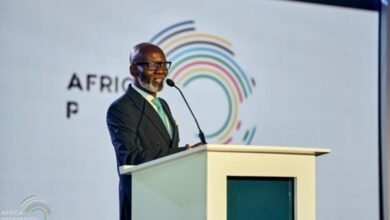Expertise Meetings : the Diaspora as a driver of development
On September 26, 2024, Tunis hosted a new edition of the Expertise Meetings, organized by Expertise France in the lead-up to the 19th Francophonie Summit, to be held in France on October 4 and 5. Under the theme "Creation, Innovation, and Entrepreneurship: How do diasporas contribute to development in the Francophone space?" this event brought together entrepreneurs and development partners to discuss the challenges of diasporic entrepreneurship.
By Amina Ben Messaoud et Khaled Nasraoui, Tunis
Launched by Expertise France, the Expertise Meetings, a new highlight of the Institution’s agenda, provide a space for debate and exchange among experts in international technical cooperation. The goal is to highlight the challenges of international cooperation while proposing concrete solutions to accelerate economic development in the Global South. Through these meetings, Expertise France builds bridges between technical expertise, innovation, and entrepreneurship, while mobilizing talents and skills from the diaspora.
It was precisely the African diasporas to whom the latest Expertise Meeting held on September 26 in Tunis was dedicated. This choice was far from random. Indeed, Tunisia, a pioneer in diasporic entrepreneurship, stands out for its proactive policy aimed at supporting its citizens abroad. Through innovative initiatives, such as tax incentives and investment facilities, Tunisia encourages its diasporas to actively participate in the country’s development, as explained by Syma Mati, project manager of the MEET Africa 2 program at Expertise France. In this regard, “Tunisia is fertile ground for diasporic entrepreneurship, and this meeting perfectly illustrates the country’s commitment to mobilizing its talents abroad.”
Diasporas are essential actors in economic development in Africa. Through initiatives like Meet Africa, we strengthen the ties between these entrepreneurs and their countries of origin
The diaspora plays a major role in the development of home countries, notably through entrepreneurship. As highlighted by Habiba Addi, head of entrepreneurship programs at Expertise France, “diasporas are essential actors in economic development in Africa. Through initiatives like Meet Africa, we strengthen the ties between these entrepreneurs and their countries of origin.” This dynamic is reflected in the transfer of skills, capital, and access to transnational networks.
In 2023, according to the World Bank, Africa had more than 250 million entrepreneurs, 58% of whom were women, contributing to nearly 60% of the continent’s GDP. A large part of this growth is driven by diaspora members, who bring not only financial resources but also expertise gained abroad.
A lever for international cooperation

During this edition of the Expertise Meetings, several speakers shared their “expertise,” including Zeineb Messaoud, executive director of The Dot, “the beating heart” of entrepreneurial initiatives in Tunisia, a partner of the event and Meet Africa. “Historically, the diaspora has always played a role in its country of origin. These are people who leave the country but, for the most part, maintain strong ties, especially with the families they continue to support financially”, recalled Zeinab, quoting an OECD study, “In Tunisia, dual nationals have a higher predisposition of starting businesses, which has an impact on the country’s development.”
Diasporas act as translators of investment opportunities in their countries of origin. They reduce the perception of risk by providing a deep understanding of local realities and international markets
“Diasporas act as translators of investment opportunities in their countries of origin. They reduce the perception of risk by providing a deep understanding of local realities and international markets,” continued Éric Vincent Guichard, founder and CEO of Homestrings.
However, it remains necessary to support this diaspora in their desire to “give back to the homeland.”
Concrete initiatives to support diasporic entrepreneurship
The meeting also highlighted concrete projects, such as the MEET Africa 2 program, which illustrates the positive impact of diaspora involvement in development. This program, led by Expertise France in partnership with the European Union, aims to encourage the creation of businesses by members of the African diaspora living in Europe.
It was an opportunity to hear testimonies from beneficiaries of these programs. « Diasporic entrepreneurs must juggle between two cultures, two different regulatory environments, and this can be a hindrance to their expansion, » said Marwa Moula, founder of Iley’Com, who mentioned human resource management and cultural adaptation as major challenges these entrepreneurs face.
Challenges faced by diaspora entrepreneurs
Indeed, while the opportunities are numerous, diasporic entrepreneurs face several challenges. One of the main obstacles remains access to information and financing. Kara Diaby, head of Repat Africa, reminded us that « access to capital remains one of the main barriers for diasporic entrepreneurs. There is a real problem of maturity and access to financing for projects in Africa. »
Access to capital remains one of the main barriers for diasporic entrepreneurs. There is a real problem of maturity and access to financing for projects in Africa
But solutions exist, and they are specifically aimed at these diaspora entrepreneurs. This new edition of the Expertise Meetings in Tunis made it possible to raise awareness of these solutions while emphasizing the major role of diasporas in the economic development of their home countries.
Diasporic entrepreneurs, strong in their dual culture, act as bridges between their host and home countries, thereby facilitating sustainable and inclusive development. Their initiatives also contribute to achieving the Sustainable Development Goals (SDGs), notably in terms of reducing inequalities and promoting inclusive growth. As Amine Aloulou, president of Atuge, concluded: « The diaspora is not only an economic force, but it is also a source of innovation and creativity for the sustainable development of the Francophone space. »






